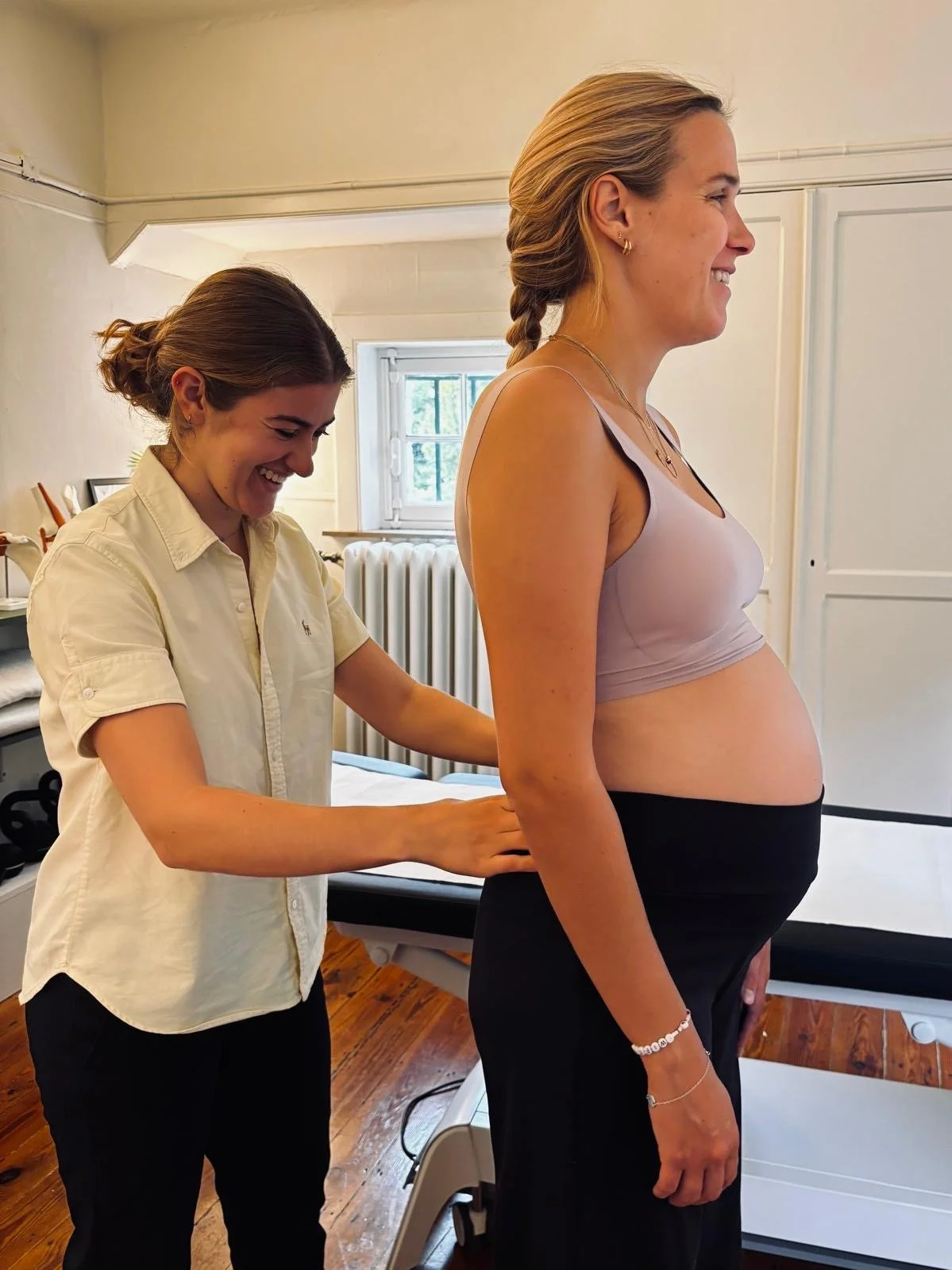How can osteopathy help during pregnancy, the postpartum period for mums, and their newborns?
Inès Dubois is an Osteopath working at Centre Mimosa in Etterbeek. Her focus is on women’s health.
Here she explains how osteopathy and perinatal care can support you and your baby through every stage, from pregnancy to the postpartum period.
What is osteopathy and how can they help?
Osteopathy is a hands-on therapy that considers the body as a whole. Instead of focusing solely on symptoms, it aims to identify and treat their underlying causes. By improving mobility, circulation, and overall body function, osteopathy helps restore balance and supports the body’s natural ability to heal itself.
An osteopath may also provide simple exercises and lifestyle advice, empowering you to take an active role in your recovery and maintain long-term well-being.
How can an osteopath help you during pregnancy?
Pregnancy brings about many physical and physiological changes as the uterus expands and the baby grows. These adaptations can sometimes cause discomfort such as:
Rib pain
Lower back and pelvic girdle pain
Digestive issues including reflux, nausea, or constipation
Osteopathic treatment can help ease these discomforts by releasing tension, improving mobility, and enhancing blood flow. For instance, in the third trimester, the growing uterus can push the diaphragm and ribs upward, leaving them in a constant “inhalation” position. This can make it feel difficult to take a deep breath. Through gentle techniques, your osteopath can release the small muscles around the rib cage and neck, creating more space and helping you breathe more freely.
How can osteopathy help you after the birth of your baby?
The postnatal period can be both beautiful and demanding. While your baby’s well-being is your top priority, it’s equally important to care for yourself. Activities such as breastfeeding, carrying your baby, and recovering from pregnancy and labour can lead to aches and muscular tension. Osteopathy can help your body recover by improving posture, mobility, and muscle balance—supporting you through this important phase of adjustment.
Is an osteopath appointment covered by your mutuelle?
Yes! a consultation costs around 70 euros with 10-15 euros reimbursed Belgian mutual insurance
How can you find an osteopath?
In the expat world word of mouth, Facebook groups, recommendation from your care providers all work well. Otherwise you might try the directory at: osteopathie.be
Inès Dubois
My name is Ines. I was born and raised in Brussels to a Spanish mother and a Belgian father. Brussels has always felt like home to me, in part thanks to its rich international atmosphere.
Driven by a passion for understanding pain and the complexity of the human body, I pursued my studies at the European School of Osteopathy (ESO) in Maidstone, England, where I completed my Master’s degree. Since then, I have continued to learn and deepen my interest in women’s health and perinatal care.
My aim is to ensure that women feel supported throughout every stage of their journey. Along this path, I discovered paediatric osteopathy, where I found a special connection with newborns and children.
More recently, I completed a postgraduate degree in nutrition, allowing me to provide care in a more holistic way to my patient


